Get Lawn Dethatching Services in Roane County, TN
Property owners in Roane County, TN, can find local contractors who specialize in lawn dethatching to remove built-up thatch, improve grass health, and prepare lawns for better growth.
Lawn dethatching services are an important consideration for property owners in Roane County, TN who want to maintain a healthy, lush yard. Over time, thatch-a layer of dead grass, roots, and debris-can build up, preventing water, nutrients, and air from reaching the soil. This buildup can lead to a thinning lawn, increased susceptibility to pests, and overall reduced plant vitality. Exploring local contractors who specialize in dethatching can help ensure the job is done effectively, supporting the long-term health and appearance of a property’s landscape.
For those planning lawn care projects or comparing service options in the area, understanding the benefits of professional dethatching is a practical step. Local service providers have experience working with the specific conditions of Roane County lawns, making it easier to find solutions tailored to the region’s climate and soil types. Keep reading to learn more about how local contractors can assist with lawn dethatching and to discover resources for connecting with trusted professionals in the community.
- Lawn dethatching services are needed when a thick layer of thatch accumulates, preventing proper water and nutrient absorption.
- Grass restoration may be required after heavy thatch buildup causes your lawn to appear patchy or unhealthy.
- Seasonal lawn care in neighborhoods of Roane County, TN, often includes dethatching to promote healthy growth during spring and fall.
- Property maintenance for homeowners seeking to improve lawn appearance and prevent pests caused by excessive thatch.
- Commercial lawn care in local business districts may involve dethatching to maintain a professional landscape.
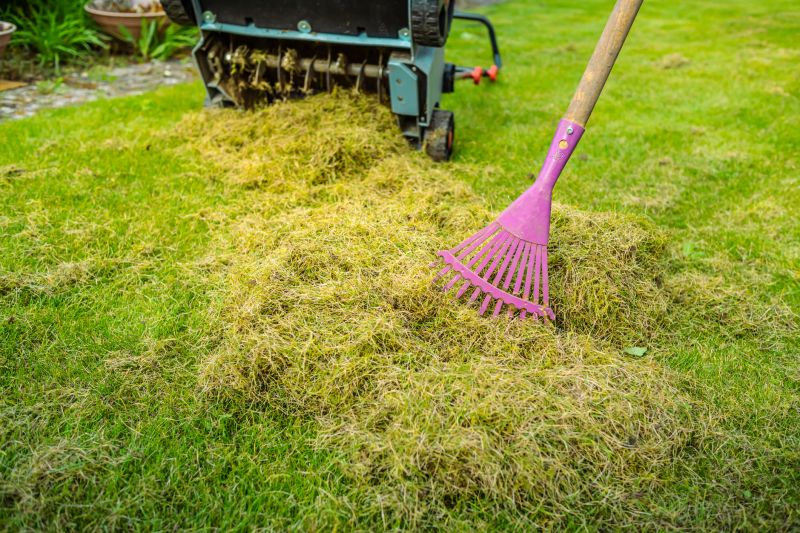
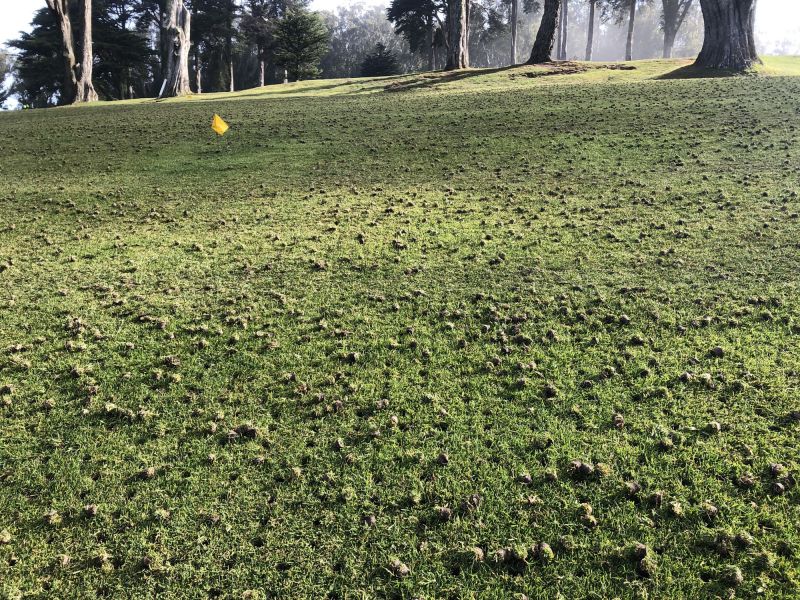
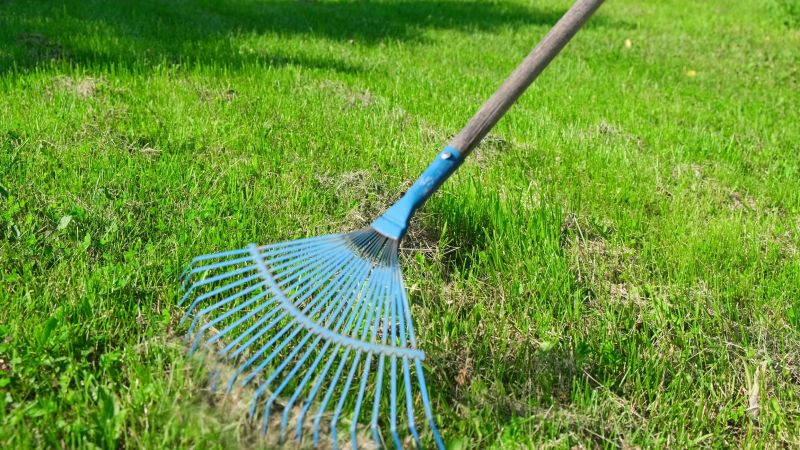
Lawn dethatching services involve removing a layer of thatch-a buildup of dead grass, roots, and organic matter-that accumulates between the healthy grass and the soil surface. Over time, this layer can become thick and dense, preventing water, nutrients, and air from reaching the grass roots effectively. Professional contractors use specialized tools to carefully eliminate this thatch, helping to restore the lawn’s natural health and appearance. Regular dethatching can be an essential part of maintaining a lush, vibrant yard, especially for properties that experience heavy foot traffic or have a dense grass variety prone to thatch buildup.
Dethatching services address common lawn problems such as poor drainage, uneven growth, and increased susceptibility to pests and diseases. When thatch becomes too thick, it creates a barrier that inhibits proper water absorption and air circulation, leading to a dull, patchy, or weak-looking lawn. Removing this layer allows the grass to breathe and absorb nutrients more efficiently, encouraging stronger root development and a more resilient yard. This service can be particularly beneficial for lawns that have become compacted or are showing signs of stress, helping to rejuvenate the health and vitality of the grass.
The types of properties that typically benefit from lawn dethatching include residential yards, community parks, and commercial landscapes. Homes with larger lawns or those that see frequent use often experience more thatch buildup, especially if the grass is a variety that tends to grow densely. Properties with clay soils or areas prone to poor drainage may also find dethatching advantageous, as it can improve water flow and reduce issues related to standing water or soil compaction. Whether maintaining a landscaped backyard or a public green space, local service providers can tailor dethatching solutions to meet the specific needs of different property types.
Homeowners should consider lawn dethatching when noticing signs like a spongy feel underfoot, thinning grass, or persistent moss and weeds. If the grass appears to be struggling despite regular watering and fertilizing, or if there are areas of patchy or uneven growth, it may be time to consult with local contractors about dethatching services. This work is often part of a broader lawn care routine aimed at promoting healthier, thicker grass. Contacting experienced service providers can help determine whether dethatching is appropriate and ensure the job is done effectively to restore the lawn’s natural beauty and function.
The overview below groups typical Lawn Dethatching Services projects into broad ranges so you can see how smaller, mid-sized, and larger jobs often compare in Roane County, TN.
In many markets, a large share of routine jobs stays in the lower and middle ranges, while only a smaller percentage of projects moves into the highest bands when the work is more complex or site conditions are harder than average.
Smaller Repairs - For routine dethatching on small to medium lawns, local contractors typically charge between $250 and $600. Many projects fall within this range, especially for lawns under half an acre. Larger or more complex jobs may cost more, but these are less common for routine maintenance.
Mid-Size Projects - For lawns between half an acre and one acre, costs generally range from $600 to $1,200. Many homeowners find their projects fit within this band, with fewer jobs reaching the higher end of the spectrum due to additional services or lawn size.
Large or Complex Jobs - Larger, more involved dethatching projects can cost $1,200 to $3,000 or more, especially if additional landscaping or lawn restoration is needed. These tend to be less frequent but are necessary for extensive or heavily thatched lawns.
Full Lawn Replacement - In cases where dethatching is part of a complete lawn renovation, costs can exceed $5,000. Such projects are less common and usually involve significant preparation, soil work, and reseeding by local service providers.
Actual totals will depend on details like access to the work area, the scope of the project, and the materials selected, so use these as general starting points rather than exact figures.
Grass Aeration Projects - local contractors often perform aeration to improve soil health, which complements dethatching by promoting better grass growth and root development.
Lawn Renovation Services - these projects involve soil preparation and turf restoration, utilizing similar tools and planning as dethatching to enhance lawn quality.
Overseeding Projects - overseeding helps fill in bare or thin areas, often following dethatching to ensure seed-to-soil contact and successful germination.
Soil Conditioning Services - soil conditioning improves soil structure and fertility, working alongside dethatching to create optimal growing conditions for grass.
Drainage Improvement Projects - local service providers may handle drainage work to prevent water pooling, which is often necessary after dethatching to maintain lawn health.
Garden Bed Preparation - preparing garden beds involves soil aeration and clearing, similar to dethatching processes used to promote healthy plant growth.
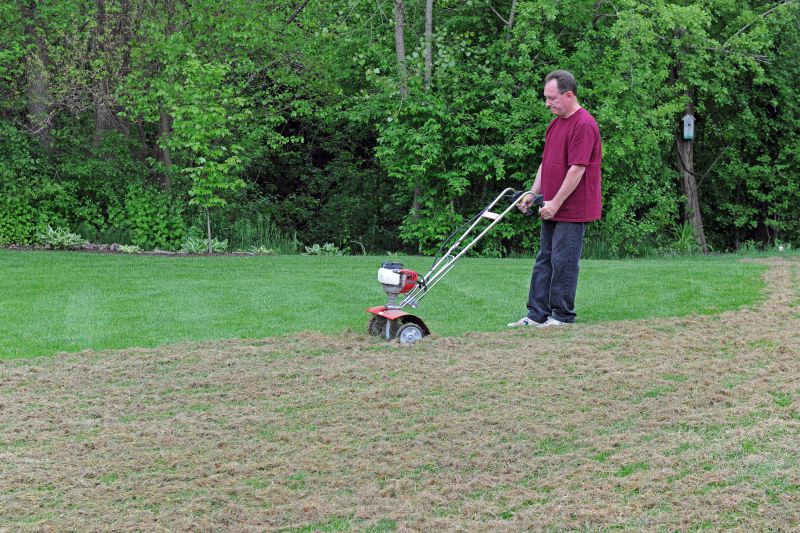
When evaluating lawn dethatching services in Roane County, TN, it’s important to consider the experience of local contractors with similar projects. Homeowners should look for service providers who have a proven track record of successfully completing dethatching jobs comparable in size and scope to their own lawns. An experienced contractor is more likely to understand the specific needs of different grass types and soil conditions, helping to ensure a thorough and effective process that promotes healthy lawn growth.
Clear, written expectations are essential when comparing local pros for dethatching services. Homeowners should seek out providers who can offer detailed descriptions of their work process, the equipment they use, and what results can be reasonably expected. Having this information in writing helps prevent misunderstandings and provides a basis for comparing different service options. It also allows homeowners to ensure that the scope of work aligns with their lawn’s needs and their personal goals for yard improvement.
Reputable references and strong communication are key indicators of reliable local contractors. Homeowners are encouraged to ask for references from previous clients or look for reviews that highlight the contractor’s professionalism, punctuality, and quality of work. Good communication throughout the process-such as prompt responses to inquiries and clear explanations of services-can make the experience smoother and more transparent. It’s important to remember that this site introduces homeowners to local options for lawn dethatching, serving as a resource to help compare and connect with qualified service providers, rather than performing the work directly.
Property owners in Roane County, TN use Lawn Dethatching Services services for practical projects around their homes and businesses. This guide focuses on everyday jobs and straightforward project options.
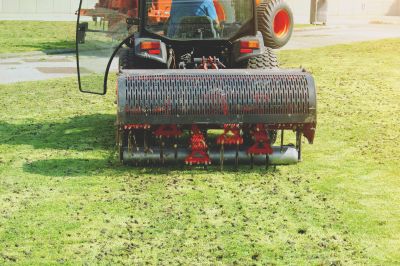
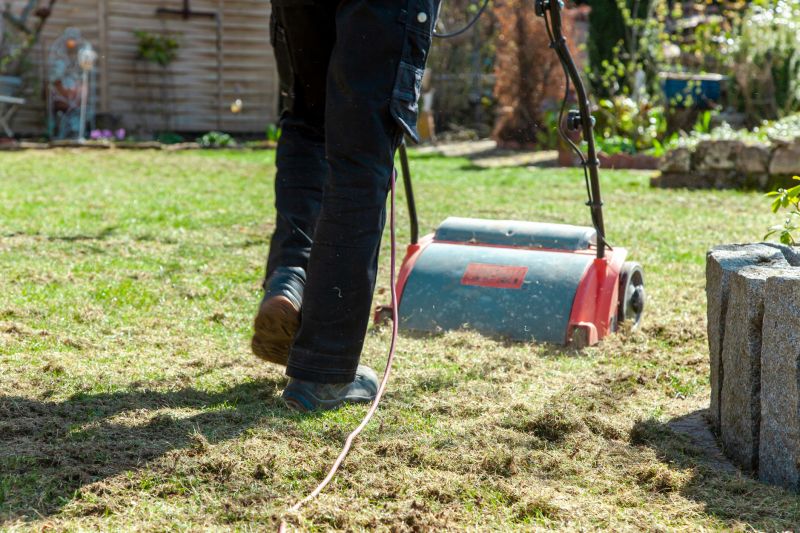
Lawn dethatching services are often needed by property owners in Roane County, TN, who notice their grass looking less healthy or experiencing poor growth. Over time, thatch-a layer of dead grass, roots, and debris-can build up between the soil and the living grass, preventing water, nutrients, and air from reaching the roots effectively. Homeowners may seek professional dethatching to restore their lawn’s vitality, especially after harsh weather or seasonal changes that accelerate thatch accumulation.
Additionally, residents might consider dethatching when preparing their yard for seasonal planting or to improve the overall appearance of their property. A thick thatch layer can make a lawn look patchy or uneven, detracting from curb appeal. Local contractors who specialize in lawn care can assess the condition of the yard and provide the necessary dethatching services to help maintain a lush, healthy landscape.
What is lawn dethatching? Lawn dethatching involves removing the layer of thatch-a buildup of dead grass and roots-that can hinder water, air, and nutrients from reaching the soil.
Why should I consider dethatching my lawn? Dethatching can improve grass health, promote better growth, and help prevent issues like disease and compacted soil.
How do local contractors perform lawn dethatching? Service providers typically use specialized dethatching equipment to carefully remove excess thatch without damaging the healthy grass.
Is lawn dethatching suitable for all grass types? Dethatching is generally beneficial for most grass types, especially when thatch buildup becomes thick or problematic.
What are signs that my lawn needs dethatching? Indicators include a spongy feel when walking on the lawn, standing water after rain, or a visible layer of thatch when inspecting the grass.
Improve Lawn Health - Lawn dethatching services can help remove excess thatch buildup, promoting healthier grass growth and a lush appearance.
Prepare for Seasonal Changes - Property owners can use dethatching to ready their lawns for spring or summer, ensuring optimal conditions for new growth.
Fix Lawn Compaction Issues - Dethatching can alleviate soil compaction, making it easier for roots to access nutrients and water.
Enhance Curb Appeal - Removing thatch layers can improve the overall look of a yard, making it more inviting and well-maintained.

If you are thinking about Lawn Dethatching Services for a property in Roane County, TN, this guide is meant to help you understand the work, the typical project types, and how different options might fit your plans.
When you are ready, you can use the quote form on this page to share a few details about your project. From there, local pros can review the basics and respond with options that match what you have in mind.
